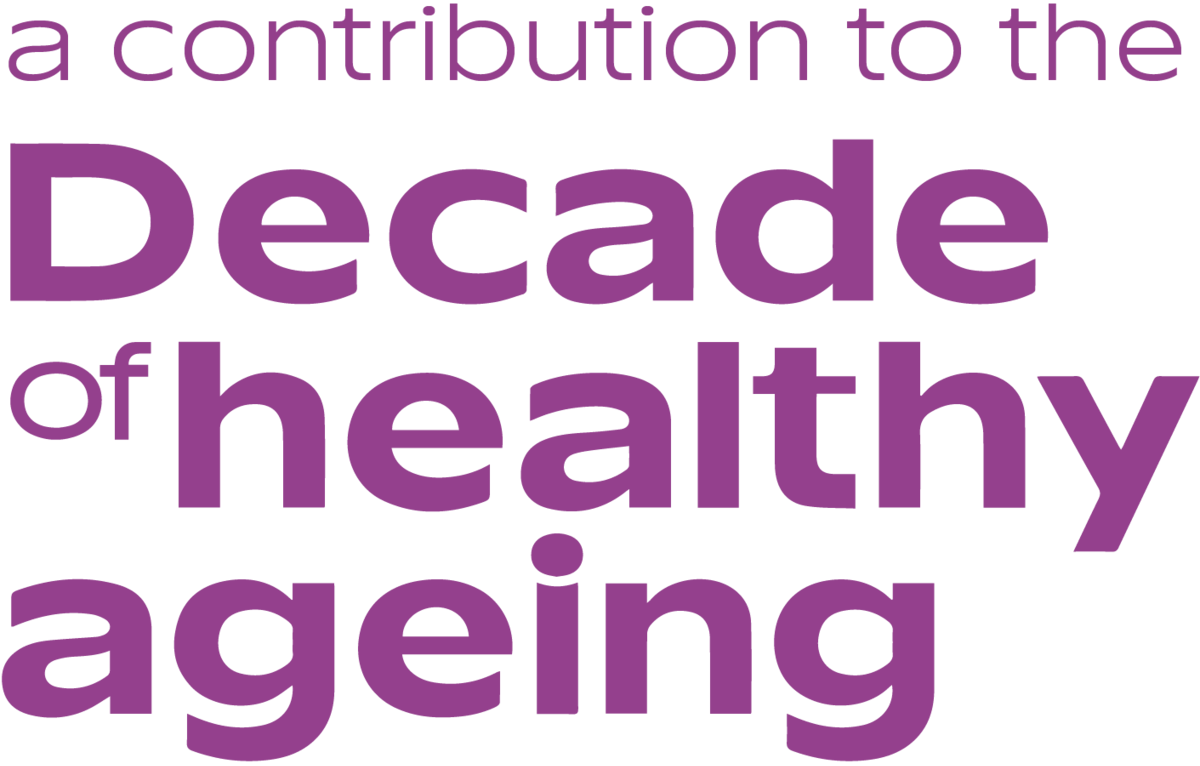Age-friendly Environments
In alignment with the WHO Age-Friendly Environments program, this conference serves as a rallying point to accelerate the global agenda for creating inclusive communities that support the diverse needs and aspirations of people of all ages. Rooted in the principles of respect, equity, and social inclusion, this theme emphasizes the importance of fostering environments where older adults can age with dignity, independence, and active participation.
Read more Implementing the WHO’s Age-Friendly Cities and Communities framework, encompassing the key domains of outdoor spaces and buildings, transportation, housing, social participation, respect and social inclusion, civic participation and employment, communication and information, and community support and health services is a commitment to healthy ageing. Key objectives include: By convening stakeholders from diverse sectors and regions, this conference aims to harness collective action towards building inclusive communities where people of all ages can live, work, and thrive. Read less
—
—
—
—
Building Capacity in LMICs: Policy and Good Practice
Building capacity in lower- and middle-income countries (LMICs) necessitates a comprehensive strategy that addresses the intricate interplay of economic, social, and environmental factors. This conference theme underscores the importance of evidence-based policies, partnerships, and community empowerment in enhancing the resilience and sustainability of LMICs while contributing to global development goals.
Read more Key considerations include the development of policy frameworks that prioritize investments in education, healthcare, workforce development, and technology, with a focus on long-term sustainability and inclusivity. Partnerships and collaboration among governments, international organizations, NGOs, academia, and the private sector are essential for leveraging resources, expertise, and best practices. Strengthening education and training systems is fundamental for building human capital, engaging local stakeholders, and promoting culturally competent practices. Improving healthcare infrastructure and services is vital for enhancing health outcomes and reducing disparities, necessitating investments in facilities, equipment, workforce development, and access to essential medicines. Empowering local communities through participatory approaches and grassroots initiatives fosters ownership and long-term impact. Lastly, robust monitoring and evaluation mechanisms are crucial for assessing effectiveness, tracking progress, identifying challenges, and optimizing outcomes. This conference provides a platform for stakeholders to exchange knowledge, share best practices, and catalyze action towards building capacity in LMICs. By adopting a holistic approach and embracing collaboration, we can work towards a future where all communities have the resources and resilience to thrive sustainably. Read less
Connecting Ageing and the Economy
Population ageing is unfolding at an unprecedented pace, particularly in lower- and middle-income countries (LMICs), presenting unique challenges and opportunities for economies worldwide. With the demographic shift occurring three times faster in LMICs than in high-income countries (HICs), there is an urgent need to prepare for the implications of an ageing population without the relative wealth of HICs.
Read more The rapid pace of ageing in LMICs necessitates innovative approaches to promote inclusive and sustainable economic growth, aligning with the UN Sustainable Development Goal 8. This conference theme serves as a catalyst for rich dialogue and knowledge exchange on a range of topics, including entrepreneurship, age-inclusive workplaces, lifelong learning initiatives, and economic security for older adults. Key considerations include addressing barriers to employment and training faced by older individuals, ensuring access to opportunities for re-entering the workforce, and combating age discrimination. Moreover, discussions will explore strategies for fostering intergenerational collaboration, enabling older workers’ participation in the labor market, and promoting economic resilience across generations. Through engaging sessions and interactive workshops, participants will explore best practices, share insights, and identify actionable strategies to promote inclusive economic growth in the context of population ageing. By fostering collaboration and leveraging the collective expertise of stakeholders from diverse sectors and regions, this conference aims to help inform a future where older adults contribute meaningfully to economies and societies worldwide. Read less
Family, Intergenerational
The fabric of society is often deeply woven with the bonds of family and community, the theme of strengthening families and promoting intergenerational programs holds profound significance. This conference serves as a platform to explore, share, and advance initiatives that nurture resilient families and foster meaningful connections between generations across the continent.
Read more At the heart of this theme lies the recognition of the pivotal role that families play in shaping the well-being and development of individuals and communities. By promoting strong family units, characterized by love, support, and mutual respect, we can lay the foundation for thriving societies. Intergenerational programs offer a unique opportunity to bridge the generation gap, foster understanding, and cultivate a sense of belonging and unity. By facilitating interactions between older adults, youth, and children, these programs can promote mutual learning, transfer of knowledge, and the preservation of cultural heritage. Furthermore, intergenerational programs have the potential to address pressing social challenges, such as poverty, inequality, and social isolation, by harnessing the collective strengths and resources of diverse age groups within communities. Throughout this conference, participants will explore innovative approaches to family support, intergenerational engagement, and community development. Key topics of discussion will include strategies for promoting positive parent-child relationships, empowering caregivers, and creating inclusive spaces for intergenerational dialogue and collaboration. By harnessing the rich tapestry of cultural diversity and wisdom that many nations embody, we can forge a future where families thrive, generations connect, and communities flourish. Read less
Healthy Ageing
As we enter the United Nations Decade of Healthy Ageing, it is imperative to rally global efforts towards fostering healthy and dignified ageing for all. This conference theme serves as a clarion call to policymakers, healthcare professionals, researchers, advocates, and communities worldwide to unite in advancing the goals of the UN Decade of Healthy Ageing.
Read more At the heart of this initiative lies the vision of promoting a life course approach to healthy ageing, ensuring that individuals can enjoy not only longer lifespans but also improved quality of life as they age. Key pillars of this approach include preventive healthcare, access to equitable and quality healthcare services, social inclusion, and age-friendly environments. Throughout the Decade, it is essential to prioritize policies and programs that address the multifaceted needs of older adults, recognizing their diversity and unique contributions to society. This entails fostering environments that promote physical activity, nutritious diets, mental well-being, and social connectedness. Moreover, combating ageism and discrimination against older adults is paramount for promoting their rights, dignity, and autonomy. Efforts to challenge stereotypes, promote intergenerational solidarity, and ensure access to lifelong learning opportunities are crucial for building inclusive societies where individuals of all ages can thrive. As we embark on this journey, collaboration and partnership are key. By harnessing the collective expertise, resources, and experiences of stakeholders from diverse sectors and regions, we can accelerate progress towards achieving the goals of the UN Decade of Healthy Ageing and create a world where individuals can age with grace, vitality, and dignity. This conference serves as a pivotal platform for dialogue, knowledge exchange, and collective action towards this shared vision of healthy ageing for all. Read less
Human Rights
In an era marked by demographic shifts and an ageing global population, safeguarding the human rights of older adults emerges as a pressing imperative. This conference theme serves as a rallying cry for advocates, policymakers, scholars, and activists to converge and address the unique rights and challenges facing ageing populations worldwide.
Read more At the core of this theme lies a commitment to upholding the inherent dignity and worth of every individual, regardless of age. Recognizing that older adults are rights-holders with distinct needs and vulnerabilities, this conference provides a platform to champion their rights, amplify their voices, and advocate for policies and practices that promote their well-being and autonomy. Key focal points of the conference include: By convening stakeholders from diverse sectors and regions, this conference aims to foster dialogue, exchange knowledge, and catalyze action towards advancing the human rights agenda for ageing populations. Read less
—
—
—
—
Immunization for All Ages
Immunisation stands as a cornerstone of public health, saving lives, protecting communities, and reducing the burden of infectious diseases. This conference theme underscores the critical importance of ensuring immunisation coverage across all age groups to safeguard public health and promote well-being.
Read more The COVID-19 pandemic has starkly highlighted the devastating impact of infectious diseases on vulnerable populations and the fragility of health and social care systems worldwide. In response, the theme “Immunisation for All Ages” aims to explore strategies and mechanisms to prioritize prevention, ensure universal access, and reduce inequity, with a focus on high-risk populations, including older adults and those with chronic conditions. Delegates are invited to engage in dialogue to inform intergovernmental agendas and action plans, such as Immunisation Ageing 2030, the UN Decade of Healthy Ageing, the Global Road Map to Defeat Meningitis, and the UN Sustainable Development Goals, with a particular emphasis on adult vaccination. Topics of discussion may include awareness and education campaigns, addressing vaccine hesitancy, system changes to improve immunisation rates, the role of National Immunisation Technical Advisory Groups (NITAGs), vaccine pipelines, and expanded immunisation programs to improve uptake rates of adult vaccination. By fostering collaboration and sharing best practices, this conference seeks to advance the global agenda for immunisation, ensuring that individuals of all ages have access to life-saving vaccines and contributing to healthier, more resilient communities worldwide. Read less
Improving Practice through Digital Technologies
The intersection of technology and ageing presents a complex puzzle encompassing design, development, and distribution. While technology holds immense potential to enhance the lives of older adults, significant barriers hinder widespread adoption and use.
Ageism plays a pivotal role in perpetuating these barriers. Stereotypes portraying older adults as technologically resistant or incapable can lead to the neglect of their needs in innovation. Access gaps, such as limited digital literacy and financial constraints, further compound the challenge of technology adoption among older demographics.
Read more Nevertheless, attitudes toward technology among older adults are evolving. Many exhibit a willingness to embrace new technologies, recognizing their potential to improve quality of life. Thus, there is a growing demand for age-friendly design principles prioritizing usability, accessibility, and inclusivity. To address this intricate puzzle, stakeholders must involve older adults in the design process, provide education to enhance digital literacy, and ensure affordability and accessibility of technology solutions. By challenging ageist stereotypes and empowering older adults to embrace technology, we can unlock its full potential to enhance their well-being and autonomy. This conference serves as a platform to explore innovative strategies, share best practices, and foster collaboration in bridging the gap between older adults and technology. Let us dismantle barriers, embrace inclusivity, and empower older adults to thrive in the digital age. Read less
Long-term Care and Improving Function
Aligned with the World Health Organization’s (WHO) Long-Term Care Framework and Integrated Care for Older People (ICOPE), this conference theme addresses the pivotal role of long-term care in safeguarding the rights and dignity of older adults and individuals facing significant loss of capacity.
The theme emphasizes the multifaceted aspects of long-term care, focusing on governance, financing, workforce development, service delivery, and innovation. Recognizing long-term care systems as enablers of functional ability and guardians of human rights, the conference aims to foster discussions and collaborations to enhance these critical components.
Read more Governance mechanisms are vital for ensuring the effective regulation, coordination, and oversight of long-term care services. By promoting transparency, accountability, and stakeholder engagement, governance frameworks can support the delivery of person-centered care and uphold the dignity of older individuals. Effective financing mechanisms are essential for ensuring equitable access to quality long-term care services. Discussions will explore innovative financing models, sustainable funding sources, and strategies for maximizing resource allocation to meet the evolving needs of ageing populations. The conference also highlights the importance of workforce development in delivering high-quality long-term care. By investing in training, professional development, and support systems for care workers, we can enhance the capacity and competence of the workforce to provide person-centered care. Moreover, the theme encourages discussions on service delivery models and innovations that prioritize individual preferences, promote autonomy, and improve the overall well-being of older adults and individuals with capacity challenges. Through interactive sessions, presentations, and workshops, participants will exchange insights, share best practices, and explore innovative solutions to establish and strengthen long-term care systems uphold the fundamental rights and dignity of all individuals. Read less



